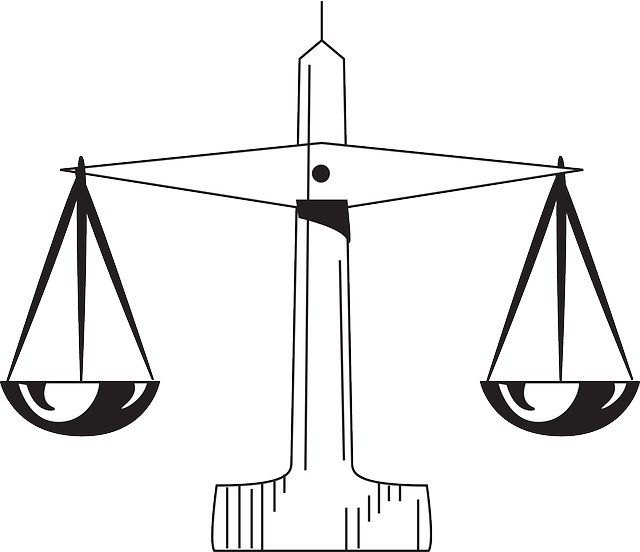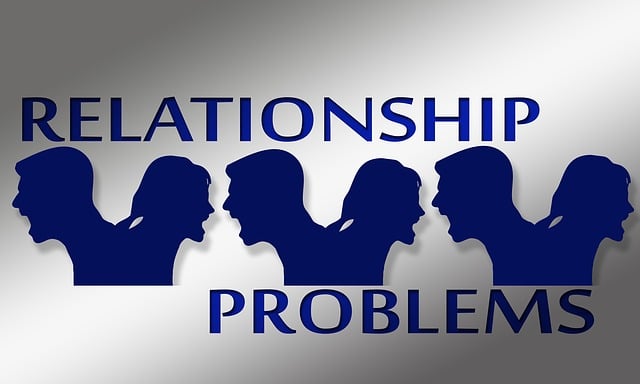UK litigation document translators provide an essential service by accurately converting complex legal texts between languages for international cases. These specialists possess a deep understanding of UK legal terminology, procedural rules, and cultural nuances, ensuring that all parties can comprehend the documents involved. Their precision is paramount, as mistranslations could lead to misinterpretation of evidence or witness statements, potentially affecting case outcomes. With expertise in various languages and advanced translation technology, these professionals comply with UK legal requirements such as the Legal Aid, Sentencing and Punishment of Offenders Act 2012 and The Official Languages (Scotland) Regulations 2009. They maintain confidentiality and deliver translations that are both linguistically and legally sound, thereby upholding the integrity and fairness of legal proceedings within the UK's judicial process. Litigation Documents UK translation services are integral to this process, facilitating clear communication and just outcomes in a globalized legal landscape.
navigating the complexities of UK litigation requires precise handling of documents, a task for which expert litigation document translators are indispensable. This article delves into the critical role these professionals play within the legal system, underscoring the significance of accurate and timely translations to uphold justice. We will explore the nuanced skills required for this specialised field, the challenges of legal vocabulary translation, and the adherence to UK laws and regulations. For legal entities dealing with international litigation, understanding the intricacies of UK litigation document translation services is key to a successful case outcome.
- Understanding the Role of Litigation Document Translators in the UK Legal System
- The Importance of Accurate and Timely Translations in UK Litigation Cases
- Key Considerations When Selecting a Litigation Document Translation Service Provider in the UK
- The Expertise Required: Specialised Skills of UK Litigation Document Translators
- Navigating Legal Vocabulary: Challenges and Solutions in Litigation Document Translation
- Ensuring Compliance with UK Laws and Regulations in Litigation Document Translation
Understanding the Role of Litigation Document Translators in the UK Legal System

In the complex realm of litigation within the UK, the precision and clarity of documents are paramount. Litigation document translators play a pivotal role in ensuring that legal papers are accurately conveyed across language barriers. These specialists are adept at converting legal texts into a comprehensible form for parties who may not have proficiency in English or vice versa. The UK translation services provided by these experts are not mere linguistic tasks but involve a deep understanding of both the target and source languages, as well as the nuances inherent in litigation documents. This includes a grasp of legal terminology, procedural rules, and the cultural context that can influence interpretation. Their work ensures that all parties involved have access to information, which is critical for fair proceedings and upholding justice. The translators’ expertise is indispensable in international cases where UK-based entities are involved, facilitating communication between legal teams from different countries and enabling the seamless exchange of evidence and arguments. This meticulous translation process upholds the integrity of the legal system by preventing miscommunication and ensuring that every detail within the litigation documents is accurately represented, thereby maintaining trust in the UK’s judicial processes on a global scale.
The Importance of Accurate and Timely Translations in UK Litigation Cases

In the complex realm of UK litigation, the precision and punctuality of translations are paramount. Litigation document translation demands a high level of accuracy to ensure that legal nuances and critical details are conveyed exactly as they appear in the original text. Expert UK litigation document translators possess specialized knowledge and fluency in both source and target languages, enabling them to navigate the intricate language of legal proceedings without distortion or ambiguity. The stakes are high; a mistranslation could lead to misinterpretation of evidence, misrepresentation of witness statements, or even overturned verdicts. Consequently, the need for timely translations cannot be overstated. Legal deadlines are often stringent, and delays in document translation can jeopardize a case’s success. UK translation services that specialize in litigation documents offer swift turnaround times while upholding the integrity of the translation. This combination of precision and promptness is crucial for maintaining the integrity of legal proceedings and achieving fair outcomes for all parties involved.
Key Considerations When Selecting a Litigation Document Translation Service Provider in the UK

When litigation documents require translation in the UK, the stakes are high, and accuracy is paramount. Selecting a reliable translation service provider is not a task to be taken lightly. The chosen provider must possess deep familiarity with legal terminology specific to UK litigation, ensuring that all nuances of the original text are accurately conveyed. Proficiency in the target language, along with a thorough understanding of the legal context, are essential qualities for translators. Moreover, a track record of handling sensitive and confidential information is crucial, as litigation documents often contain proprietary or privileged material.
The best translation service providers in the UK specialise in litigation document translation and offer a range of services tailored to legal professionals. They should be adept at various languages and equipped with advanced translation technology to maintain consistency and accuracy across large volumes of documents. Additionally, they must adhere to strict confidentiality protocols and comply with the Legal Aid, Sentencing and Punishment of Offenders Act (LASPO) 2012, which governs the disclosure of documents in litigation. Their expertise in navigating court procedures and liaising with legal entities ensures that translations are not only accurate but also legally sound, thereby supporting your case effectively in a UK jurisdiction.
The Expertise Required: Specialised Skills of UK Litigation Document Translators

UK litigation document translators are a specialized subset within the broader field of translation, tasked with accurately conveying complex legal content from one language to another. Their expertise is not merely in linguistic proficiency but also in the nuanced understanding of UK legal terminology and the intricacies of litigation processes. These professionals are adept at handling a variety of documents, including contracts, witness statements, pleadings, and court orders, ensuring that each translation maintains the original’s legal weight and integrity. The specialised skills required for this role encompass not only fluency in both source and target languages but also a comprehensive grasp of UK legal systems, procedures, and context-specific vocabulary. This dual expertise is crucial for translators to navigate the intricate details often found within litigation documents and to convey them accurately in UK translation services, thereby upholding the integrity of legal proceedings across linguistic barriers.
Furthermore, UK litigation document translators must possess a keen eye for detail and an understanding of cultural nuances that could affect the interpretation of legal terms. They are often required to work within strict deadlines and under confidentiality agreements, reflective of the sensitive nature of litigation documents. The ability to accurately render legal arguments, evidence, and testimony in a manner that is both clear and recognisably faithful to the original is a hallmark of this profession. In addition to their linguistic and legal knowledge, these translators must stay abreast of legal reforms and changes in legislation within the UK, ensuring their translations are not only accurate at the time of translation but remain so as laws evolve. This commitment to ongoing professional development underscores the essential role they play in international legal practice.
Navigating Legal Vocabulary: Challenges and Solutions in Litigation Document Translation

In the realm of litigation, documents serve as pivotal evidence and record of legal proceedings. Accurate translations of these documents are paramount, given the complex nature of legal language and the critical importance of precision in such contexts. UK translation services specialising in litigation documents face the challenge of accurately transferring nuanced terminology and intricate concepts from one language to another. This requires not only a deep understanding of legal vocabulary but also cultural nuances that may influence the interpretation and implication of terms. To overcome these hurdles, expert translators must possess specialized knowledge in both law and linguistics. They employ sophisticated tools and methodologies to ensure semantic equivalence, context-appropriate terminology, and compliance with legal standards across different jurisdictions. This commitment to excellence by UK translation services ensures that litigation documents are accurately translated, thereby upholding the integrity of the legal process and maintaining the trust of clients who rely on these translations for pivotal decisions. The role of these specialists is indispensable, as they navigate the complex interplay between language and law, facilitating clear communication in international litigation and dispute resolution.
Ensuring Compliance with UK Laws and Regulations in Litigation Document Translation

When navigating the complex landscape of litigation in the UK, the accuracy and legality of translated documents are paramount. Litigation document translation requires a deep understanding of both the original language and the specific legal terminology used within the documents. UK translation services specializing in this field must ensure compliance with UK laws and regulations, which includes adherence to the Legal Aid, Sentencing and Punishment of Offenders Act 2012, and the Statutory Instrument 2009 No. 314: The Official Languages (Scotland) Regulations 2009. These regulations dictate that all official documents must be translated with precision to avoid misinterpretation or misrepresentation of the facts, ensuring that the translation conveys the original meaning accurately and completely.
In the context of litigation, where every detail can influence the outcome of a case, the stakes for precise translation are high. UK translation services offering litigation document translation must employ expert linguists with specialized legal training. These professionals are adept at handling sensitive and confidential information, providing translations that meet the high standards required by the UK legal system. They work diligently to ensure that all nuances of the original text are preserved in the target language, facilitating a fair and just process for all parties involved. This commitment to quality and compliance is not just a service but a cornerstone for upholding justice within the UK’s judicial framework.
In concluding, the pivotal role of expert litigation document translators within the UK legal system is undeniable. The accuracy and timeliness of translations are critical factors in the successful resolution of disputes. When selecting a translation service provider for litigation documents in the UK, it is imperative to consider the translator’s specialised expertise and proficiency with the nuanced legal vocabulary involved. With stringent compliance measures adhered to, these professionals ensure that all documentation meets the necessary legal standards, thereby upholding the integrity of the judicial process. Litigation document UK translation services stand as a testament to the meticulous attention to detail and professionalism required in this field, safeguarding justice and fairness for all parties involved.
